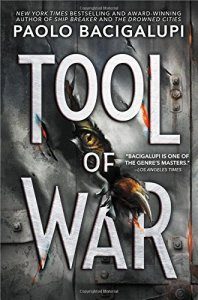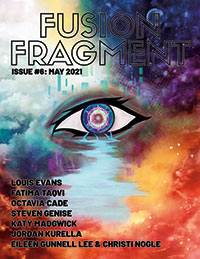Ian Mond Reviews The Wolfe at the Door by Gene Wolfe
 The Wolfe at the Door, Gene Wolfe (Tor 978-1-25084-620-4, $29.99, 480pp, hc) October 2023.
The Wolfe at the Door, Gene Wolfe (Tor 978-1-25084-620-4, $29.99, 480pp, hc) October 2023.
With its punny title, The Wolfe at the Door is the second collection of Gene Wolfe’s work to be published this year (and the third book to come out since his passing in 2019). Where The Dead Man and Other Horror Stories from Subterranean Press assembled Wolfe’s more chilling tales, Tor’s The Wolfe at the Door isn’t so much unified by theme as it is by the story’s status, its rarity, and whether it has been previously collected. As such, we are presented with a cornucopia of stories, ranging in tone (the comedic, to the whimsical, to the scary), genre (dark fantasy, the supernatural, hard and soft science fiction), and quality (the slight to the memorable).
The collection consists of 36 stories, a handful of poems, and an amusing anecdote about a prank Harry Harrison and Gordon R. Dickson pulled on Damon Knight (involving a cocktail called the “White Piano” that Knight always ordered but which no bartender had ever heard of). The work is then broken up into eight sections with ominous-sounding titles such as “Out of the Darkness”, “A Howling Wind”, and “Monsters in the Trees”. I’ve no complaint about how the collection has been stitched together; the groupings have a thematic logic. But as someone who has read very little of Wolfe’s fiction, and especially not the works he’s known for, like The Fifth Head of Cerberus or The Book of the New Sun, I found it more revealing to split the book in two, contrasting Wolfe’s early fiction (from the ’50s to the ’70s) with the stories he penned in his later years (starting around 2004).
Wolfe’s younger output is what you would expect from a writer learning their trade. There’s mimicry of familiar tropes and styles but also experimentation, playing with different forms of storytelling. The two earliest stories, “Easter Sunday” and “The Grave Secret” (both published in 1951), have a distinct EC Comics vibe. In the former, Reverend Dobson chats with a stranger who, shock horror, turns out to be Satan, while in the latter, a necromancer digs up and resurrects, shock horror, his own corpse. Neither story is especially memorable, but they have a liveliness about them, an appreciation for the absurd and a cheeky sense of humour (the Reverend, at one point, asks the Devil if he’s a Trotskyite). As Wolfe expands his palette, trying his hand at science fiction and crime fiction, he never loses that energy or verve. Take “The Green Wall Said”, where a seemingly random group of people abducted by aliens try to figure out why they’ve been taken, overlooking the alien’s tragic explanation, writ large, emblazoned on a massive green wall. Or “Loco Parentis”, written as a short play, where a mother and father are unaware that they are simulacra (maybe machines, maybe cloned apes), rearing a child until it reaches an age where it will no longer be “bothersome” to its natural parents. Both pieces are wry, poking fun at the absurdity of being human. That playful sense of fun extends to most of these early stories, whether it be a clever pastiche of Hammer Horror (“A Method Bit in B”) or the two Philips Pitney stories (a gun collector who solves crimes) or a locked-room mystery set on a rocket ship (“Thou Spark of Blood”).
As you would expect, the stories by older Wolfe are more accomplished and ambitious though they vary wildly in quality. I wasn’t taken with the Nebula-nominated novella “Memorare”, which follows a documentary filmmaker who travels to the asteroid belt to film inside memorials left by deceased space travellers. “Memorare” reads like a throwback to the ’50s and ’60s, especially Wolfe’s treatment of the female characters, who have little agency and suffer moments of cruelty and physical violence. Conversely, my two favourite pieces were written around this period. I typically avoid Christmas tales, but “Christmas Inn” is a story I can see myself returning to. Creepy and strange but also beautiful, the piece involves four enigmatic adults and a child (who not everyone can see) who visit a mostly empty inn run by an unassuming family on the eve of Christmas. I also adored “The Magic Animal”, a lovely, fable-like tale that starts as a story about a young girl who speaks to animals only to transition into a unique and clever retelling of the Arthurian legend.
For the completist, The Wolfe at the Door is a must-buy. For the Wolfe novice like me, it’s an excellent introduction to his work.
Ian Mond loves to talk about books. For eight years he co-hosted a book podcast, The Writer and the Critic, with Kirstyn McDermott. Recently he has revived his blog, The Hysterical Hamster, and is again posting mostly vulgar reviews on an eclectic range of literary and genre novels. You can also follow Ian on Twitter (@Mondyboy) or contact him at mondyboy74@gmail.com.
This review and more like it in the December and January 2023 issue of Locus.
 While you are here, please take a moment to support Locus with a one-time or recurring donation. We rely on reader donations to keep the magazine and site going, and would like to keep the site paywall free, but WE NEED YOUR FINANCIAL SUPPORT to continue quality coverage of the science fiction and fantasy field.
While you are here, please take a moment to support Locus with a one-time or recurring donation. We rely on reader donations to keep the magazine and site going, and would like to keep the site paywall free, but WE NEED YOUR FINANCIAL SUPPORT to continue quality coverage of the science fiction and fantasy field.
©Locus Magazine. Copyrighted material may not be republished without permission of LSFF.








